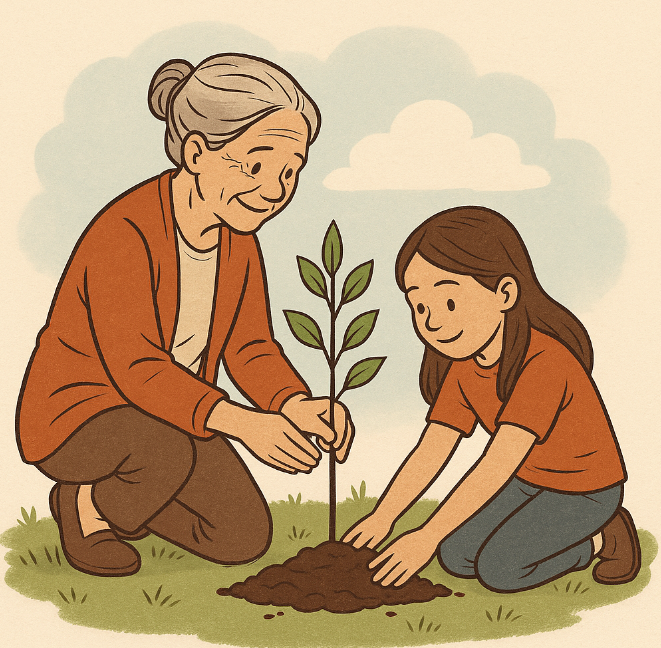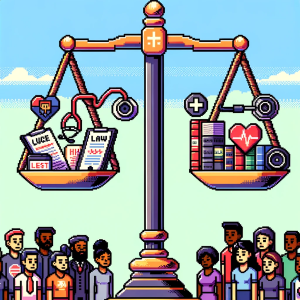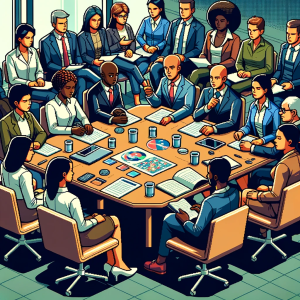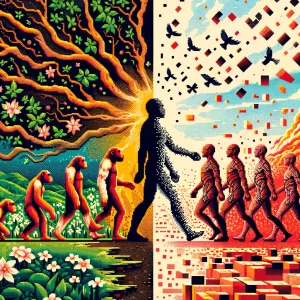
Being Better Ancestors for a Healing and Just Healthcare System
Healthcare in the United States is at a crossroads. Rising costs, declining (or precipitously falling) trust, and persistent racial and social inequities have made it clear: patchwork fixes and short-term programs aren’t enough. In their NEJM Catalyst article, Being Better Ancestors for a Healing and Just Healthcare System,” Somava Saha, MD, MS, Kellie Easton, and Kenneth Reid offer a bold roadmap to address structural racism in healthcare and guide us toward a fair, trustworthy, and healing system: not just for today, but for generations to come.
At the heart of their vision is the Better Ancestors for System Change framework. a way of thinking and acting that blends Indigenous wisdom, historical reclamation, and systems theory to create deep, structural change.
Why the Current System Falls Short
While “health equity” has become a buzzword, the authors argue that most healthcare interventions focus on individual bias or social needs without tackling the policies, practices, and narratives that perpetuate inequities.
Structural racism — what legal scholar John A. Powell defines as “the normalized and legitimized range of policies, practices, and attitudes that routinely produce chronic adverse outcomes for people of color” — runs deep in healthcare. This shows up in:
- Race-based clinical algorithms that miscalculate kidney function for Black patients.
- Hospital siting decisions based on payer mix, leaving poorer areas underserved.
- Medical debt collection practices that deepen poverty and discourage care.
- Persistent racial disparities in maternal mortality, even among highly educated women.
Importantly, these inequities often harm all patients, not just marginalized groups. For example, while debt collection disproportionately affects communities of color, medical bankruptcy is the leading cause of bankruptcy for all Americans.
The Call to Be “Better Ancestors”
The authors challenge healthcare leaders to see themselves not just as stewards of an institution today, but as ancestors shaping the conditions for future generations. That means:
- Looking seven generations back to understand the legacies we’ve inherited, including harm and exclusion.
- Making decisions today with the well-being of seven generations forward in mind.
- Taking bold, structural action even when political climates make direct conversation about racism difficult.
This long-term lens helps us move beyond short-term pilot projects and toward lasting, systemic transformation.
The Framework: Three Core Lenses for Change
The Better Ancestors for System Change framework integrates three complementary perspectives:
1. Seven-Generation Thinking (Indigenous Wisdom)
Reframe leadership as building trust, health, and equity that will endure far beyond your own tenure.
2. Sankofa (Historical Reclamation)
From the Akan tradition in Ghana, the Sankofa bird teaches us to “go back and get it” — reclaiming cultural knowledge, care traditions, and truths erased by systemic oppression.
3. Two Loop Model (Systems Theory)
Developed by the Berkana Institute, this model shows how declining systems give rise to new ones. In healthcare, this means supporting innovators and communities at the margins, connecting them into networks, and allowing the old system to “compost” useful parts into the new.
The Five Shifts We Need in Healthcare
To move from a system grounded in inequity to one rooted in justice and healing, the authors outline key shifts:
- From profit-first to health-first — align payment systems with community well-being.
- From denial to accountability — measure and address racism at the structural level.
- From biased diagnostics to equity-based standards — remove unfounded race- and sex-based distinctions from care.
- From centralized control to shared governance — empower communities in decision-making.
- From downstream treatment to upstream investment — address the social and structural drivers of health (housing, education, safety).
Why This Moment Matters
The article warns that we’ve reached a tipping point in public trust. People still believe in their doctors and nurses, but they’re losing faith in the healthcare system as a whole. The authors argue that the only way forward is to go deeper, owning the harm that has been done, centering community voices, and creating enabling environments for transformation.
Examples of change are already emerging:
- Hospital systems are collectively eliminating harmful debt collection practices.
- States are removing race-based corrections from transplant lists, leading to thousands more patients receiving kidneys.
- Indigenous and rural communities are reshaping care systems around cultural healing practices.
The Effectiveness of the Better Ancestors Model
What’s powerful about this framework is that it connects history, community wisdom, and practical systems change into a single approach. It refuses the false choice between “being realistic” and “being just.” Instead, it offers healthcare leaders a structural roadmap that is both aspirational and actionable.
The model recognizes that:
- Racism is not just about individual bias — it’s baked into structures.
- Transformation requires relationship, trust, and shared leadership.
- Lasting change must be planned in generations, not grant cycles (and yes, that is tough to do).
Final Takeaway
Being a “better ancestor” means choosing actions today that dismantle structural harm and lay the foundation for an equitable, healing healthcare system for all. This is moral and strategic work. Systems designed for those most harmed will ultimately work better for everyone. The Better Ancestors model provides the tools, the vision, and the courage to get there.



